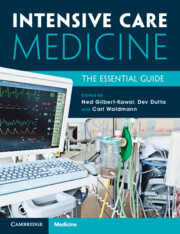Book contents
- Intensive Care Medicine
- Intensive Care Medicine
- Copyright page
- Dedication
- Dedication
- Epigraph
- Contents
- Contributors
- Preface
- Foreword
- Abbreviations
- Section 1 Resuscitation and Management of the Acutely Ill Patient
- Section 2 Diagnosis, Assessment, Investigation, Monitoring and Data Interpretation
- Domain 3 Disease Management: Recognition, Causes and Management
- Section 4 Therapeutic Interventions and Organ Support
- Domain 5 Practical Procedures
- Section 6 Perioperative Care
- Section 7 Comfort and Recovery
- Section 8 End-of-Life Care
- Section 9 Paediatric Care
- Section 10 Transport
- Section 11 Professionalism, Patient Safety, Governance and Health Systems Management
- Index
- References
3.15.2 - Managing Aggression in Intensive Care
from Section 3.15 - Psychiatric Disorders Encountered in Intensive Care
Published online by Cambridge University Press: 27 July 2023
- Intensive Care Medicine
- Intensive Care Medicine
- Copyright page
- Dedication
- Dedication
- Epigraph
- Contents
- Contributors
- Preface
- Foreword
- Abbreviations
- Section 1 Resuscitation and Management of the Acutely Ill Patient
- Section 2 Diagnosis, Assessment, Investigation, Monitoring and Data Interpretation
- Domain 3 Disease Management: Recognition, Causes and Management
- Section 4 Therapeutic Interventions and Organ Support
- Domain 5 Practical Procedures
- Section 6 Perioperative Care
- Section 7 Comfort and Recovery
- Section 8 End-of-Life Care
- Section 9 Paediatric Care
- Section 10 Transport
- Section 11 Professionalism, Patient Safety, Governance and Health Systems Management
- Index
- References
Summary
Key Learning Points
1. All busy hospitals receive violent patients. Staff should be trained in appropriate reduction and response practices. Make the environment as safe as possible, and plan for a ‘worst case scenario’.
2. For patients who understand their behaviours, set limits to expressions of anger. Aggression must not compromise others’ care.
3. Identify specific groups at risk of ‘unpredictable aggression’.
4. Reducing aggression requires: (1) coordinated, multi-level action; (2) treatment of pain, review of medication and safe prescription of sedatives; (3) consistent nursing staff, extra staffing and a multidisciplinary team approach; (4) family involvement; and (5) psychiatric liaison.
5. After violent events, document and report events accurately, and debrief all staff involved.
Keywords
Information
- Type
- Chapter
- Information
- Intensive Care MedicineThe Essential Guide, pp. 437 - 440Publisher: Cambridge University PressPrint publication year: 2021
